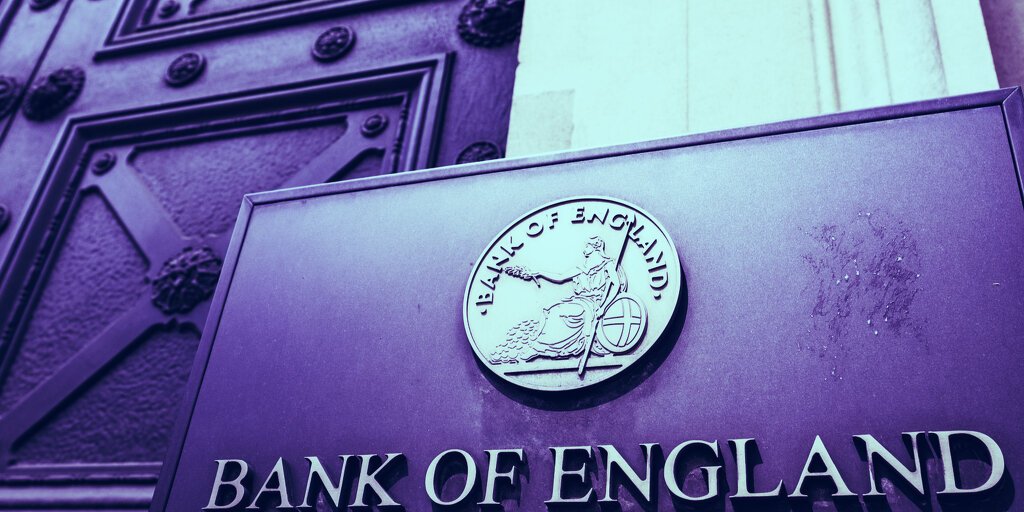Crypto asset markets pose only a “limited risk” to the UK, according to the Bank of England.
“Crypto asset markets continue to grow rapidly, but currently pose limited risk to UK financial stability,” the Financial Policy Committee (FPC) of the Bank of England (BoE) has said.
“Regulation needs to develop quickly enough, both domestically and at a global level, to address the risks they could pose in the future,” the central bank added.
The BoE’s FPC has pledged to continue to pay close attention to crypto, including the relationship between these assets and the UK financial system.
While crypto enthusiasts may celebrate what appears to be an optimistic outlook on the industry, the FPC did ensure to close its crypto commentary with a warning.
“The FPC considers that financial institutions should take a cautious and prudent approach to any adoption of these assets,” the FPC said.
These comments come after the Financial Conduct Authority (FCA)—the UK’s financial services regulator—issued a series of stern statements about crypto.
FCA and Bank of England on crypto
In January of this year, the FCA listed five entirely reasonable concerns about cryptocurrencies.
The FCA’s concerns included a lack of consumer protection, price volatility, product complexity, charges and fees, and misleading marketing material. “If consumers invest in these types of products, they should be prepared to lose all their money,” the regulator added.
The FCA’s concerns are easy to understand, especially considering the regulator saw a 222% increase in inquiries about scams relating to cryptocurrencies between April 2020 and March 2021.
The FCA has also experienced a very public spat with Binance, one of the crypto industry’s largest exchanges by daily volume traded.
In June, an FCA spokesperson told Decrypt the regulator had a “huge issue” with Binance’s apparent lack of a headquarters. Months later, the FCA doubled down, claiming that Binance’s UK-acquired entity—Binance Markets Limited—was incapable of being regulated after the firm allegedly failed to provide basic information to the regulator.





















